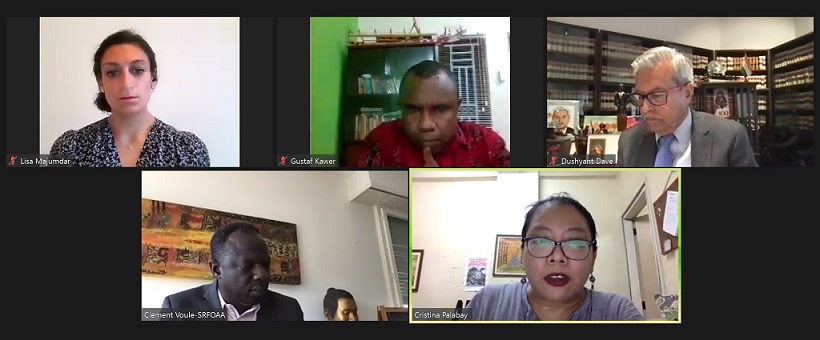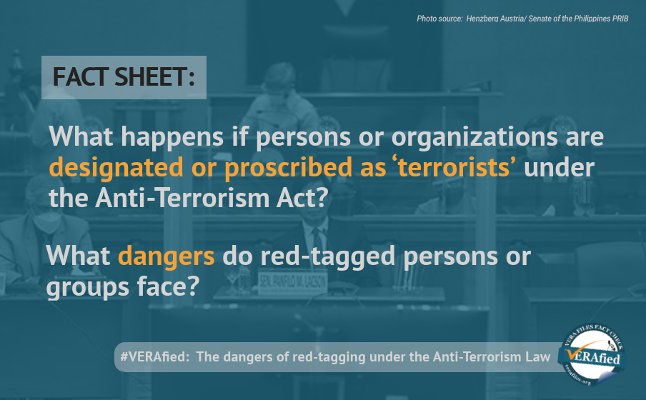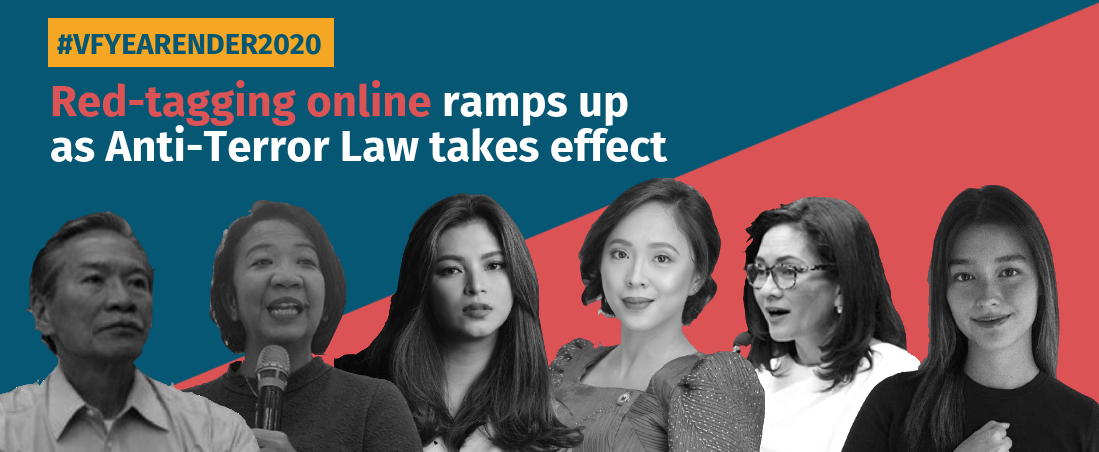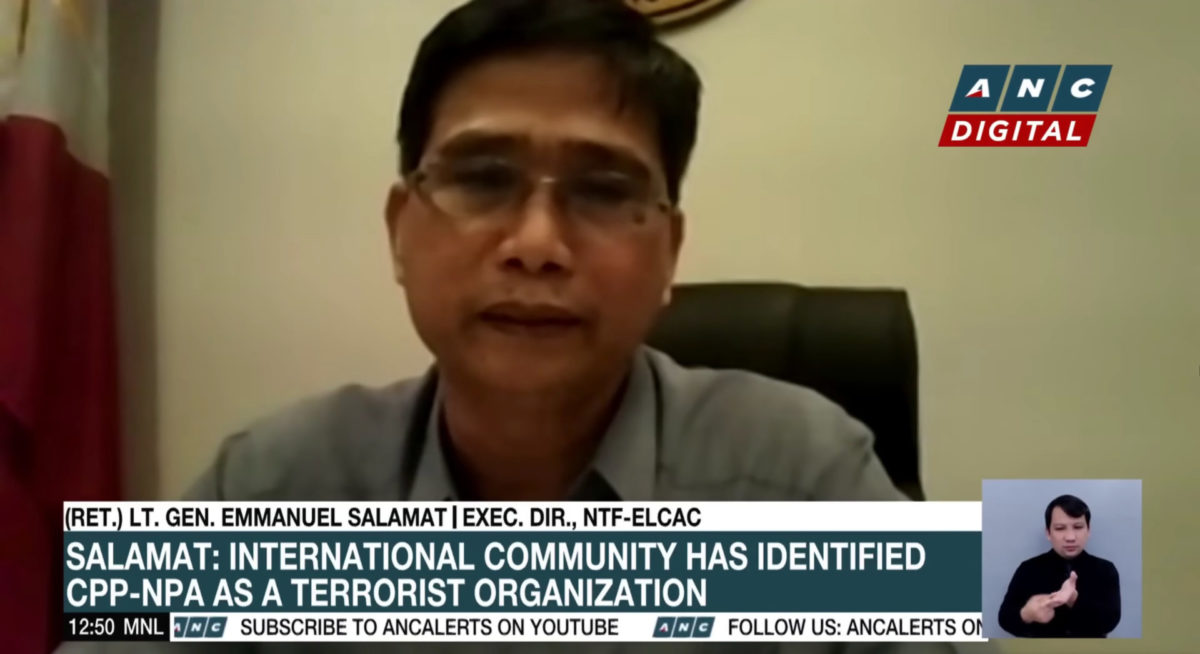
CIVICUS forum, July 8. 2021
In countries like the Philippines, Indonesia, India and other parts of the world, the COVID-19 pandemic and the campaign against terrorism are being used to curtail political dissent and violate human rights, a practice that must stop, according to United Nations Special Rapporteur on peaceful assembly and association Clement Voule.
The official warned in an online forum Thursday that laws on national security and counter-terrorism are increasingly used by various states to impose restrictions on peaceful assembly and commit human rights violations as noted in a 2018 UN report.
“The COVID-19 currently also increases this kind of practice because of this militarization of the state response through COVID-19 measure. Sometimes, it looks more like putting in place not (a) measure to fight against disease but more to militarize the response and to restrict the opposition and any political opponents’ view in the country,” he said.
This was confirmed by Karapatan Secretary General Cristina Palabay who said that her group has documented the killing of 91 activists and farmers since the controversial Anti-Terrorism Law (ATL) was passed in the Philippines over a year ago. People have been arrested for alleged violation of quarantine restrictions, dissenters have faced trumped-up charges while others have been victims of red-tagging, she noted.
“We knew that the counter-terror law will commence on being used not to crack down on terrorism but to crack down on dissent,” Palabay said, joining the call for the repeal of the ATL.
Some 37 petitions to junk the ATL have been filed in the Supreme Court and nine sessions for the oral arguments have been conducted.
Palabay said the arrest and detention of two members of an indigenous people’s group on charges under the ATL as well as the freezing of the bank accounts of non-government organizations and peace process consultants have adversely affected projects for minorities and peasant communities.
“Prior to having an anti-terrorism legislation and emergency laws during the pandemic, the human rights situation (was already in) crisis, with the bloody drug war laying the pretext for the increased emergence of the climate of fear and impunity,” she added.
Gustaf Kawer, a human rights lawyer and defender, said the same violations are happening in the Indonesian province of West Papua, where the “sham” UN-backed 1969 referendum has subjected the people to extrajudicial killings, detention, and torture, among others.
He pointed out that Indonesia’s National Human Rights Commission recognized four cases in West Papua that could constitute crimes against humanity. However, only one was brought to court and the perpetrator was later acquitted.
In India, lawyer Dushyant Dave said that there have been no big terrorist attacks except in the province of Kashmirbut the country’s anti-terrorism and sedition laws are used to suppress dissent.Since India’s justice system is “badly clogged’ and cases can take 10 to 20 years to be resolved, those charged – especially the ones who cannot afford to pay bail – languish in jail but often end up being acquitted.
Like in the Philippines, Dave said that foreign donations to NGOs in India are closely scrutinized and restricted.
Voule clarified that the UN understands the need to stop terrorism and to ensure national security, but there must be changes in how this is currently done. He said the problematic paradigm of national security versus political dissenters should be corrected.
“Fighting against terrorism needs the mobilization of the citizens. It needs the mobilization of all stakeholders to ensure that the fight against terrorism deals also with the issues and the causes of terrorism itself,” he said. “You can maintain the security of the country by also protecting human rights.”
Palabay stressed the importance of accountability and a human security framework that really looks into the root causes of terrorism. She urged the people to continue to insist on their freedoms and rights.
“Social movements and civil society everywhere should not lose that struggle for justice and accountability,” she said.“We should hold the line and keep the line strong to uphold our rights wherever we may be, in the Philippines, at the regional or international arena.”
The UN Special Rapporteur also stressed the importance of adhering to international human right standards and advised the global community to pay critical attention to support they may be providing to regimes that use national security laws to undermine human rights.
“In the end, if security is not to protect the people, to protect safety and the life of people, then what is the need for having those laws?” Voule pointed out.
Rhoanne de Guzman is a student of the University of the Philippines writing for VERA Files as part of her internship.



